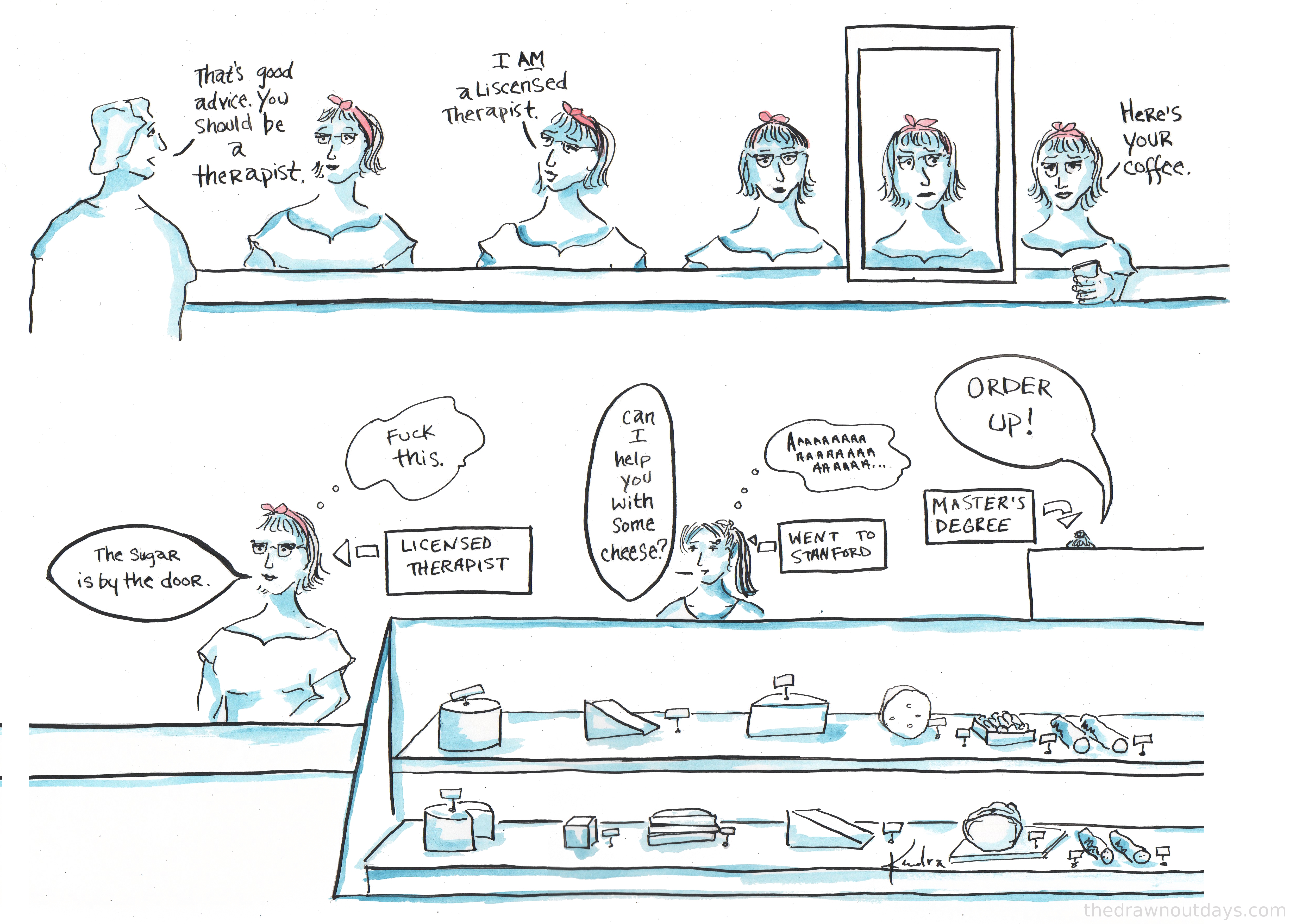During first year, I was assigned to spend a few half-days with a preceptor who was a family medicine doctor. He was fantastic at connecting with his patients, and his patients clearly adored him in return.
The first time I met with the preceptor, I asked him how often he sees acute presentations of disease, as opposed to seeing chronic conditions. He looked dismayed.
"I don't see conditions and diseases," he said. "I see people."
He pointed at his list of patients for that day. "Look at Mr. Oikos here. He worked as a pharmacist in his native country but retired to the United States to live closer to his family. They don't visit him very often anymore." He pointed out another name on his schedule. "Mrs. Lennison runs the restaurant at the local golf course and enjoys spending time in her garden. She feels that her relationship with her older daughter is becoming strained. Mr. Waters here is an electrician who just retired and is trying to figure out what to do with his free time. These people are my friends. I care about them.
"I hate that the electronic medical record shows the patients' 'complaints' when I see the list of the day's patients. Yes, some of them are sick, but some of them are just coming to see me. Maybe they're lonely, they're scared, or they just want to talk to someone who understands them. Take Mr. Oikos. He has had terrible pain all over his body for years. He comes here every two months, and each time, I examine him and then offer him medication for his pain, because I have no other way to treat it. But each time he refuses. And he's a pharmacist, so he knows all about the medications I'm offering him.
"Why does he keep coming back, even though I have nothing new to offer him? Because he feels comforted by talking to me, by having someone examine him, by knowing that someone cares about him.
"My patients are not diseases, they are people. You must remember that."
_____
Whenever possible, I look to research a patient's chart before I see them. In clinic this year, I saw a patient without having looked at their chart beforehand. He had crashed his car at high-speed, hitting his head. As a result, he had no memory of the crash.
It was my job to sort out what had gone on, and whether it constituted a medical problem that needed treatment. Was this a seizure? A cardiac problem? Perhaps the patient fell asleep at the wheel, or perhaps was distracted and not paying attention?
After taking a brief history and a physical exam, I wasn't very confident in a diagnosis. I immediately found my preceptor and presented my differential: the either patient fell asleep at the wheel, had been distracted, or had lost consciousness. I was leaning towards being distracted.
The preceptor asked me if anything else could have been going on. I couldn't think of much (maybe the patient intentionally crashed their car so they could collect on insurance?). My answers evidently disappointed him.
We went in to see the patient together, and he pulled up the patient's chart. It showed that the patient was taking high doses of a number of narcotics. While he was driving, he was probably so zonked out on narcotics that he wasn't able to pay sufficient attention to the car ahead of him. I had missed two chances to pick up on this fact: first, when looking through the chart, and second, when taking my history from the patient. It was sloppy of me, and it made me miss the diagnosis.
Afterwards, the doctor sat me down in his office. "You're quite good at the technical parts of medicine," he told me. "You're quick and efficient, and you're good at working up whatever problem they've come in for. But you need to be addressing their broader needs. Spend more time getting to know the patient. You need to look through their chart and ask them open-ended questions. Find out who they are and how they're doing.
"These patients aren't just medical problems, they're people. And if you get to know them as people, you'll be better at treating their medical problems."
_____
Years apart, given by different doctors in different contexts, came the same pointed reminder: Patients are people.
In the pre-clinical years of medical school, there is so much book work and studying that it's easy to ignore this fact. This is the beauty of our clinical rotations. It fleshes out the rest of our education, and reminds us what we are here for as doctors.


